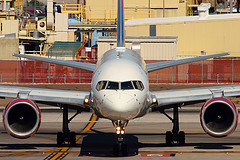New Airfare Rule Means The Price Advertised Is The Price You'll Pay
What can seem like a reasonably priced fare can blow up in your face with government fees and taxes by the time you’re done clicking through the various windows in online booking. But that will be no more — the Department of Transportation has a new rule going into effect next month requiring advertised fares to be the full price customers pay.
CNN says the listed fares will have to include all mandatory taxes and fees when buyers are cruising through online bookings starting Jan. 26. Some carriers have opposed the plan, as those fees can inflate prices up to 20%.
Southwest Airlines, Allegiant Air and Spirit Airlines are among those who have filed legal appeals against the rule, saying it violates commercial free speech rights. Their view is that other goods and services are advertised without taxes added, like a burger or items of clothing.
But the DOT is on the side of the customer, writing: “In order to understand the true cost of travel, consumers need to be able to see the entire price they need to pay to get to their destination the first time the airfare is presented to them.”
There are a whole slew of other air travel passenger protections going into place next month. Others include, according to CNN:
• A ban on price increases after a ticket has been purchased
• A 24-hour window for passengers to hold or cancel a reservation without payment or penalty for reservations made a week or more before the departure date
• Required disclosure of baggage fees upon booking and on e-ticket confirmations
• Required prompt notification of delays of more than 30 minutes, cancellations and diversions
‚Ä¢ The same baggage allowance and fees to apply throughout a passenger’s trip
Rule coming to improve airfare transparency [CNN]
Want more consumer news? Visit our parent organization, Consumer Reports, for the latest on scams, recalls, and other consumer issues.


